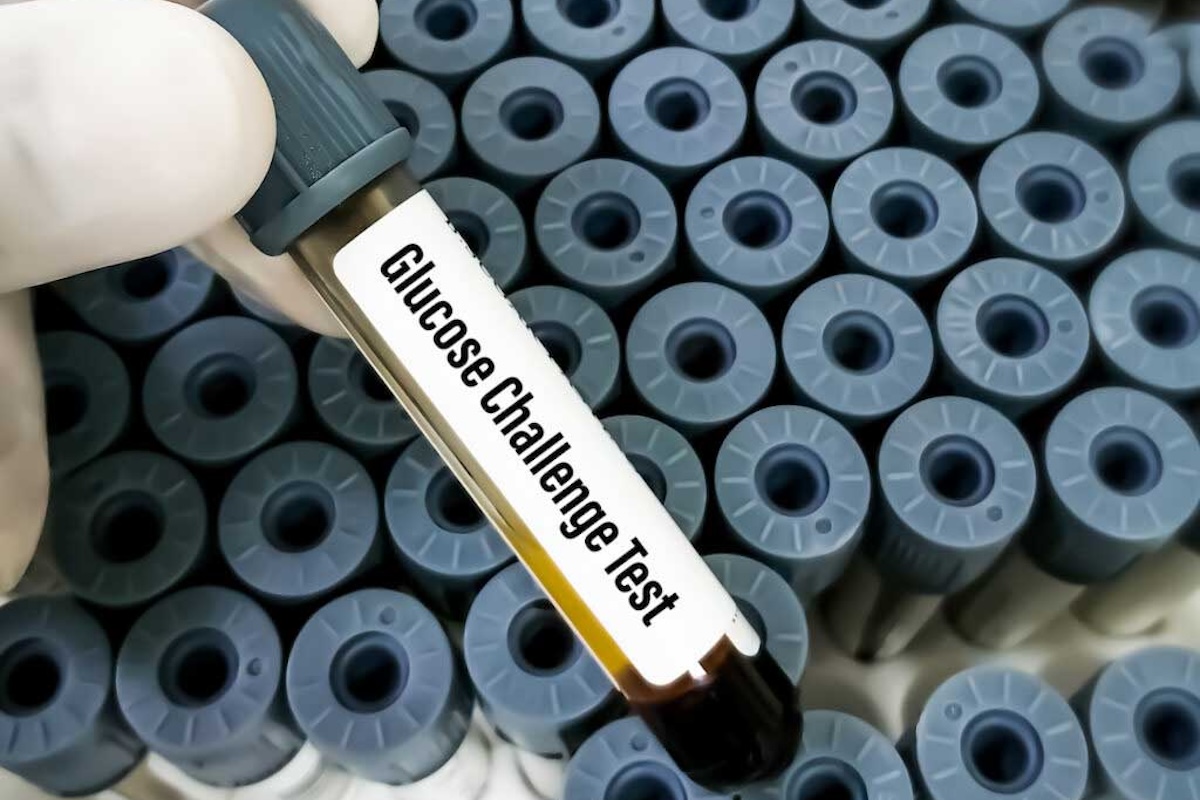One of my favorite things about my job is forming lasting relationships with patients. One of my first patients at my current practice was a pregnant woman referred for management of her gestational diabetes. It was her first pregnancy, and she was anxious about having a healthy baby.
Over the following 10 weeks, we worked closely together and spoke often about her blood sugars, nutrition, and activity. I think I was almost as excited as she was when she delivered a healthy baby boy — I still have the birth announcement in my office. She was in my office the other day and laughed when she saw it.
That baby is a tween now. The patient and I have worked together again during two additional pregnancies also complicated by gestational diabetes. Today the focus of our office visits is not getting through the last trimester of a complicated pregnancy but working to keep my patient, now in middle age, healthy for the rest of her life.
Why do pregnancy complications matter after pregnancy?
During a complicated pregnancy, doctors and patients often focus on how the disease — gestational diabetes, hypertension, or preeclampsia — will resolve when the baby is delivered. But we know that gestational diabetes, along with many other pregnancy complications including preeclampsia, gestational hypertension, preterm delivery, and stillbirth, don’t just impact pregnancy. They increase women’s risk for long-term health problems like diabetes and heart disease.
A review in the journal Circulation does an excellent job of laying out how different pregnancy complications impact risk for cardiovascular disease. It is important to note that pregnancy complications don’t cause heart disease and diabetes but are correlated with the development of cardiovascular disease.
The reason we care about this correlation is that it gives doctors key information about a woman’s future risk and because we think pregnancy complications and cardiovascular disease have a common root cause. We don’t fully understand the link, but we hypothesize that inflammation in the blood vessels can lead to pregnancy complications like preeclampsia and gestational hypertension. And that same inflammation in the blood vessels can lead to cardiovascular disease.
The relationship between gestational diabetes and Type 2 diabetes is more direct. Pregnancy increases the demands placed on many organs in the body, including the pancreas, which makes insulin. If the pancreas can’t meet those increased demands for insulin, the blood sugar increases. Later in life, as our hormones change with menopause, our body may also need more insulin to maintain normal blood sugar. Again, our pancreas may not be able to meet those demands and our blood sugar will rise. Diabetes in any form also increases cardiovascular risk.
How should you address these risks with your doctor?
If you know you are at increased risk for diabetes or heart disease because of a complicated pregnancy, you want to be sure you are working with your doctor to manage that risk. Often the doctor you will work with regarding your long-term health will not be the doctor who managed your complicated pregnancy; one exception might be if you worked with an endocrinologist to manage gestational diabetes.
The most important thing you can do is provide your doctor with a detailed and accurate medical history. When filling out those forms at a new doctor’s office, always include pregnancy complications in the medical history section. The doctor should ask about pregnancy complications at your first visit, but if she doesn’t, bring it up when asked about your general medical history.
I find it helpful for my patients to add some details about their experience. Whether your complicated pregnancy was last week, last year, or decades ago, take a minute now to jot down the details for safekeeping. Many of my patients do this in the notes app on their phone so they will have access to it anytime they are in the doctor’s office. If you still have your hospital discharge summary or can get it from the hospital, that sometimes has details.
Not every doctor will need every detail, but it is helpful to have the information on hand when a doctor asks for details.
What information is important to share?
Information that will be helpful to your doctor includes whether all your pregnancies were complicated, if you had more than one. Did you have gestational diabetes with two out of three pregnancies or all three?
Were your pregnancies similar or did you have more severe symptoms with one pregnancy? Gestational diabetes, for example, often requires more intensive treatment in each subsequent pregnancy. But if you had a significant weight loss between pregnancies and didn’t have gestational diabetes in your second pregnancy, that is helpful for me to know.
At what point in your pregnancy were you diagnosed? What treatments did you receive? At what week of pregnancy did you deliver? Did you deliver early because of pregnancy complications? These questions help me to understand the severity of the disease.
Consider preeclampsia diagnosed at 38 weeks of pregnancy leading to a successful induction, versus preeclampsia diagnosed at 26 weeks of pregnancy, admission to the hospital for monitoring and medication, and an emergency C-section at 30 weeks. The more dramatic presentation suggests to me that you may be at greater risk in the future.
Don’t forget to include what happened after delivery. Did you require medication after you left the hospital? If so, for how long? Did you have another glucose tolerance test — that’s the one where you drink the sickly sweet drink and have your blood sugars measured over a few hours — at your six-week postpartum visit? What were the results of that test?
Which doctor(s) should you see?
Once you gather your information, which doctors should you share it with? Usually you can start with your primary care provider. They can monitor your blood pressure, cholesterol, and blood sugar at your annual checkup. Intervening early can prevent more serious health problems later. Your PCP can also help you understand which lifestyle changes may be most impactful for you and connect you with other resources, like a dietician.
If any of your routine tests start to creep upward, you may be referred to a specialist like a cardiologist or endocrinologist. You should share your detailed pregnancy history with those doctors as well. Specialists can do more in-depth testing and help you decide when treatment with medication would be beneficial. They also often work with other specialized providers, such as certified diabetes educators.
What if you feel ignored by your doctor?
Some women will encounter doctors who will minimize their concerns. It is okay to restate your concerns explicitly. You might say something like, “Given my history of gestational diabetes, I know I am at high risk to develop diabetes in the future. It is important to me to do everything I can to avoid that.” You can request a referral to a specialist. Depending on your insurance and the availability of specialists where you live, you may be able to see a specialist without a referral.
Ultimately, you need to feel comfortable with your doctor. If you feel they aren’t addressing your health concerns even after you explicitly share how important they are to you, you may want to consider seeking care elsewhere.
Bottom line
- Some pregnancy complications, like preeclampsia, gestational diabetes, and preterm delivery, increase your risk for diseases such as diabetes and heart disease later in life.
- Keep a detailed history of your pregnancy complications, including when they were diagnosed and how they were treated. Always include your pregnancy-related complications in your medical history.
- Your primary care provider should monitor you for changes in blood pressure, cholesterol, and blood sugar and can refer you to specialists if needed. Intervening early is key to preventing worsening health problems.

















Log in